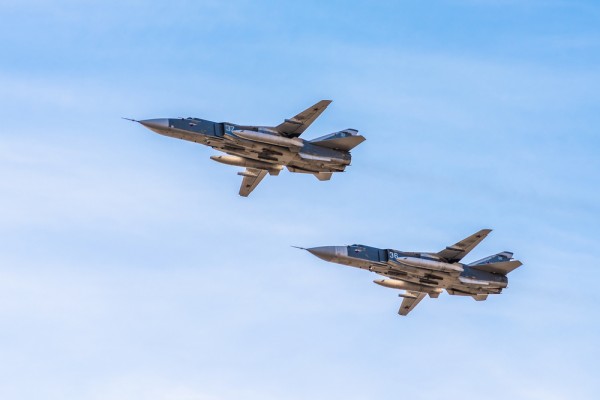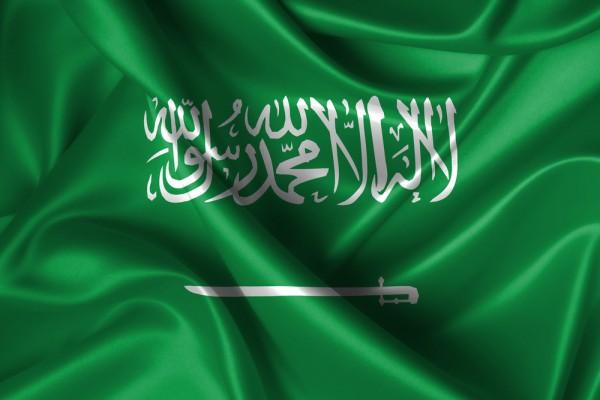The massive terrorist attack in Brussels came as a Not So Fast answer to Vladimir Putin’s Mission Accomplished. It appears the world needs more of Russian intervention in the Middle East if the black killers from the desert are to be stopped. Luckily, Russia is not in a rush to leave completely. From what I hear in Syria, the promised withdrawal is rather a figure of speech. Some Russians are leaving, others are staying.
Yes, I am aware that many of our colleagues, gentlemen of the free press, already explained and justified Putin’s sudden declaration. They wrote that Putin had said in September the campaign would last till spring, so being a man of his word he had to live up to his promise. They wrote the Russians had done as much as they could or should, that their mission is indeed accomplished. (This is odd, for the dreadful Daesh and his awful sister al Nusra are alive and kicking). Others said the Russians are clever to go while going is good, that is before the looming joint Turkish and Saudi invasion of Syria. The hostile (to Russia) pens explained Putin’s decision by stiff resistance of the jihadis on the ground (by Nusra at Aleppo, by Daesh at Raqqa), while the most adventurous minds of high conspiracy adepts knew of an ultimatum presented by Mr Kerry and President Erdogan to Putin, saying “Leave right away or we shall seal the Bosporus straits against your ships”.
However, a week passed, and now we know and understand more than we did a week ago. It seems the withdrawal is limited; it is more of a signal than the real thing. Some fighter jets and some soldiers went back to Russia, for they were needed for the big celebrations of the Crimea reunification anniversary on March 17. They were awarded their medals; a link between Crimea episode and Syrian campaign was established in the minds. The declaration had sent a useful signal to Syrians and other Arabs that Russia does not intend to colonise them. Otherwise, the Russians are still in Syria and will remain there for a considerable time, though they will keep a lower profile.
The strategic aviation TU-22M3 has anyway carried out its sorties from its bases in Russia, and now, they say, there is a shortage of targets worthy of wasting a smart bomb a one million dollars’ price tag on. The smuggled oil convoy bombing is over, as well. There is still a lot of oil being illegally carried from Iraqi Kurdistan and from Daesh oil wells, but some sizeable part of this oil traffic is being used by the Syrians to produce electricity and draw water. Bombing it was fun (perhaps), but the Syrians asked to desist.
Why was the declaration of withdrawal made? It was a pointed reminder to President Assad that he has not got all the time in the world at his disposal to make peace with his adversaries. Russians became frustrated by his generals’ delaying tactics. It appears that Syrian top brass had made a totally wrong conclusion, namely, that the Russians will keep fighting for the Syrians until Bashar Assad regains full control over the whole country. This is not so: the Russians are eager to see real progress in negotiations.
“Bashar Assad is flexible, but his generals are not. They think there are just two possible outcomes: victory or defeat. This is not realistic. The generals will get the message as we withdraw” – I was told by a Russian officer stationed in Latakia.
The declaration of withdrawal had been pointedly made in the first day of a new round of Geneva negotiations. It was a tangible proof that Russia did not seek a military victory, but relied upon diplomatic means. The declaration sends more signals to all parties. Turkey would think twice before invading Syria while Russians are supposedly leaving. The Europeans will not accuse that Russia’s bombs are sending new waves of refugees to its shores. The withdrawal is a signal to Iran, too, as this country withdrew the bulk of its forces in Syria and did not agree to the Russian proposal to cut oil production.
Russians do not want to carry the brunt of war on their shoulders. This is what they say to Iranians, and even more so – to Bashar Assad and his people. At private events, the Syrian generals were congratulating each other how smartly they tricked the Russians into fighting for them. The Syrian army shirks the battle, say the Russian officers in Syria, they wait for the Russians to pull the hot potatoes for them. Syrian officers do not heed Russian advisers’ instructions, they do not want to charge into the heat of battle. Sometimes they run away at the slightest enemy threat. Russian advisers were forced to engage the Daesh fighters personally, instead of doing their job, that is to operate advanced military hardware.
The Russians are upset that the Syrians did not pull their weight when it comes to negotiations with the armed opposition groups. The negotiations go in two tracks: one, remote and internationalised, in Geneva, where the Syrian government talks with the groups of emigres through the medium of Staffan de Mistura. Both sides are stalling; and anyway it is not clear how much influence on the ground these emigres have. The second, and more promising track is local. These are negotiations with local armed groups, and there are hundreds of them. More and more of them enter the ceasefire, but each arrangement calls for a compromise, for special conditions and some give-and-take. Until the withdrawal declaration, the Syrian officials weren’t keen on doing this hard work. Why should we bother, when we can defeat them all with Russian help, they said. Now, perhaps, they will put more effort into local negotiations.
The Russians say the Syrian government should do some soul-searching regarding the causes of the civil war. Sure, Saudis and Turks and the US are guilty to a great extent, but there were local contributing factors: clannishness, a heavy-handed security apparatus, the sore lack of elementary democratic arrangements. This has to be changed, and as soon as possible. Syria will never go back to its pre-civil-war form of one family rule, and Assad people should internalise this message as soon as possible. Russian withdrawal declaration should keep them focused.
This does not mean that Russia is likely to agree with the opposition demand of getting rid of Assad. Nothing of this sort. Stiff-necked he surely is, but more pliable man would not survive five years of war. Russian – Syrian cooperation continues unabated, Russians heavily bombed the Palmyra area, and Syrian troops advanced into its old quarries. Conquest (or liberation?) of Palmyra will be a visible achievement for the Syrian army and a gift for Syrian Christians for the coming Easter, as this oldest Christian community in the world had lost over half a million of its members in dead, wounded and destitute refugees.
The situation has been complicated by pro-American Kurds in Syria who had declared their ‘autonomy’. Russians did not like it as it does not agree with the Russian vision of united Syria. For the Turks, creation of autonomous or independent Kurdistan in Syria is a casus belli, a good reason for war. This is likely to provoke Turkish intervention, when things are complicated enough. Turkey went through a bout of a civil war of its own, on its own territory, versus the Kurds. Some sources say as many as 20,000 persons were killed in the war. Independent Syrian Kurdistan will inflame Turkish Kurds, say the Turks.
Russia does not support the Kurdish rising, despite its long historic ties with some Kurd movements. Apparently Russians should be able to make peace with Turkey, and the Turks are willing: they were first to send their condolences at Russian Vorkuta coal mine disaster. Turks are going through reassessment of their Syrian policies, and Turkish newspapers and politicians have been calling for U-turn: for recognition of Syrian territorial integrity and for reconciliation with Russia. I called for reconciliation with Turkey in the Russian media (here it is in English translation), but the responses were muted. The Russian policy-makers weren’t rushing forward. Russia’s strong Armenian lobby pushed for rejection of Turkish overtures for reconciliation, and traditional Russian sentiments from the Tsar days were also rather hostile to Ankara. However, some changes appeared in the rejection wall, and one can hope the bridges between Russia and its great neighbour will soon be mended.
The enemies of a Syrian settlement are still active. The Saudis had spent over 90 billion dollars on the Syrian civil war and regime change. This is a considerable sum even for the super-rich kingdom. But they are still throwing good money after bad. Encouraged by the Russian declaration, they began to transfer money and equipment to the armed opposition.
The US also keeps trying to turn the tables in its favour, but it seems that the White House is less hostile to Russia than it was half a year ago. European politicians and statesmen in power are mainly pro-American and anti-Russian; even the horrible terror attack in Brussels caused the Latvian Foreign Minister to call for sending more NATO troops to its Russian border (?!). Still, one can notice small signs for change, as Russian economy improves, its rouble is going up versus the dollar and euro, and the Europeans suffer from the loss of Russian orders.
Israel is another enemy-friend, or a “partner”, in Putin’s words. Israel hopes to split Syria into a few mini-states, or at least to ‘federalise’ it, like the Americans. Israel has a good working relations with the radical Islamists of Syria; not a single Israeli or Jewish asset has been targeted by Daesh or Nusra groups who are stationed right by Israeli border, protected by Israeli cannons. At the same time, Israel has good relations with Russia. President Putin is quite soft towards Israel; admittedly not on the level of US presidential candidates, but then, Russia has no AIPAC of its own. (The official Russian Jewish community is an empty shell of Chabad emissaries who amass their fortunes and extol Putin.)
Israeli president Rivlin has visited Moscow last week, after the declaration of withdrawal. He told Putin that Israel regrets Russians are leaving for they were a stabilising factor in Syria. Putin smiled and said they are not going far. Rivlin was worried Russian departure will create a vacuum allowing Hezbollah (he had enough tact to avoid mentioning Bashar Assad) to take positions at Israeli border. – Hezbollah will leave for Lebanon when Syria is at peace, Putin comforted him.
This is a small comfort for Israel, as right now the Jewish state loudly discusses launching a “pre-emptive” strike against Hezbollah in Lebanon. The best friend of the Jews in the Middle East, Saudi Arabia and its Gulf allies declared Hezbollah “a terrorist group”, and withdrew four billion dollars of aid they previously promised to Lebanon. Having Saudi support on their side and Lebanese displeasure at losing money on the background, Israelis plan an attack on the indomitable Shia warriors.
They did it in 2006 and were beaten off; the Jewish dream of revenge matured into obsessive hatred in these ten years. Israeli army received and spent many billions of dollars just for this purpose (they called it “learning the lessons of 2006”). Now they have learned that Hezbollah had lost 1300 fighters in Syria: a huge number for a small fighting force, and their desire to kill the rest off became irresistible.
Last week, the leader of Hezbollah, Sheikh Hassan Nasrallah warned the Israelis they will pay a horrible price if they dare to attack. His missiles, he said, will pour on Israeli doomsday factories, on its stockpiles of nuclear, biological and chemical weapons as well as on their oil and gas installations in Haifa Bay. Such an attack can kill millions, he said, so better don’t you start the war.
This is a sensible proposition given by a sensible man adhering to the hedgehog strategy: do not touch him and he will not bother you. But Israelis have a different mentality. The Jewish State is quite similar to the Islamic State. They trust only weakness and defeat, and aren’t satisfied until their enemy submitted to their mercy, and probably not even then, as the fate of Palestinians proves. It would be good if Syrian crisis is settled soon: now Lebanon is full of the Syrian refugees to the brim, and in case of Israeli attack on Lebanon, they all will have to run somewhere, preferably to Syria.
One can only hope the Russian presence will have a cooling effect, not only on Islamic jihadis, but on the Jewish ones, as well. And Russians had learned something from the Jews who used to say: an Englishman leaves without saying farewell, a Jew says his farewells but does not leave. Now it is the Russian turn: they bid farewell, but remain in Syria.
Update
In my previous piece Russians Ride Fast, I predicted: “I’d expect them to take Palmyra in the course of next few days (consider it a tip).” So it came to pass! Another successful prediction for our readers )) It appears the Russian bet worked, after all. Putin’s declaration to withdraw his troops and jets out of Syria has been intended to signal Assad and his generals that Russians do not intend to be ridden by their Syrian and/or Iranian allies. The Russians do not plan to fight for and instead of the Syrians. This signal has been received and understood. For five weeks the Syrian units stood at Palmyra, failing to give it a push. Now, after Russian “withdrawal”, they pushed forward and re-took Palmyra. It was reported that one Russian officer died at Palmyra, but his name or rank has not been given yet. Still, it proves that coordination and collaboration of Syrians and Russians hadn’t visibly suffered after Putin’s declaration. Russian bombardment of the area (“target softening”) was very heavy, but the decisive impact has been that of Syrian troops who understood they have to fight, not wait.
Israel Shamir can be reached at adam@israelshamir.net
This article first appeared in The Unz Review.
 RSS
RSS



































